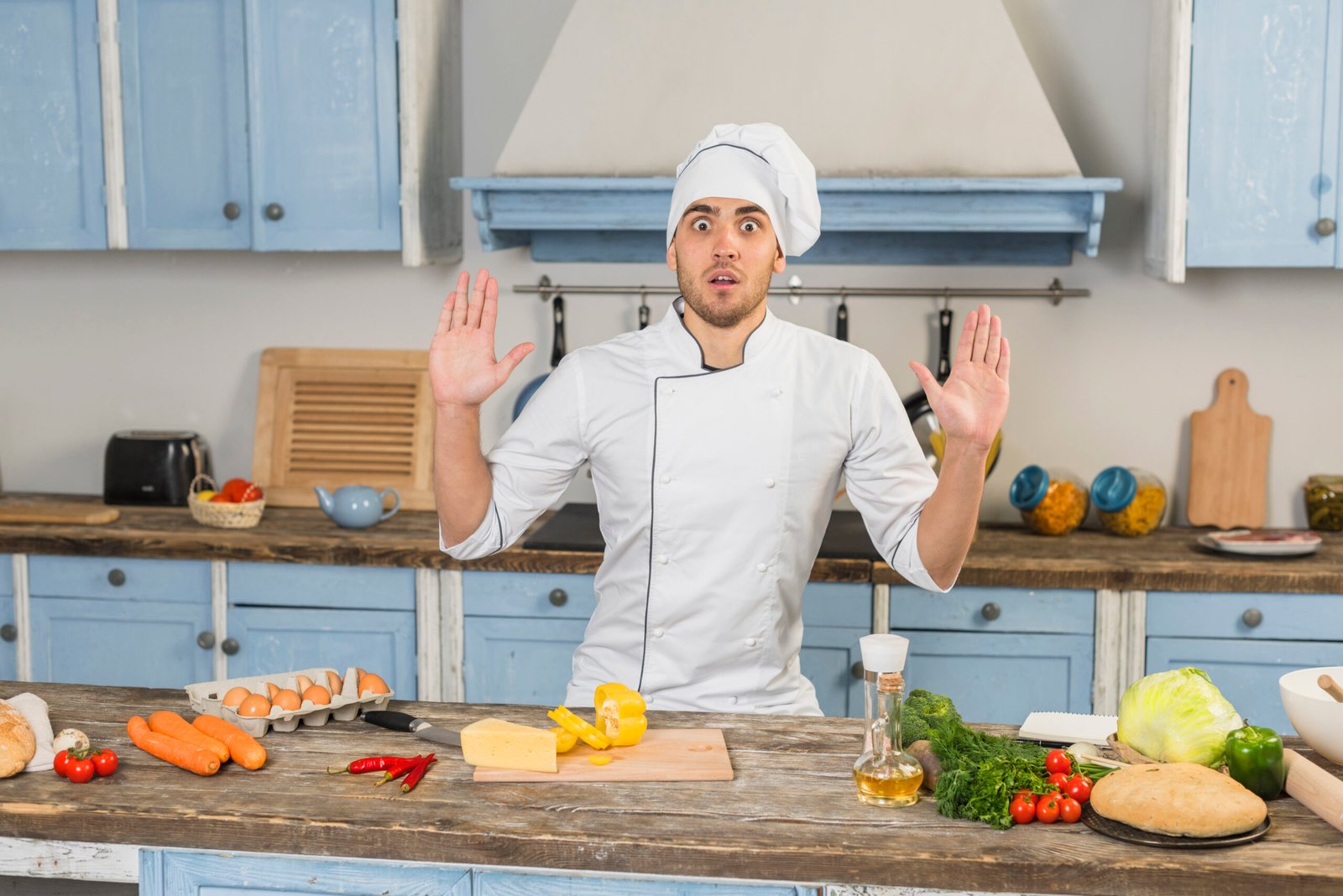The kitchen is the heart of the home a place where meals are prepared, aromas fill the air, and families gather. But while it’s filled with joy and nourishment, it can also be a hotspot for accidents like burns, cuts, and fires. That’s why knowing and following kitchen safety tips is absolutely essential.
By practicing a few simple safety habits, you can not only protect yourself and your loved ones but also save time and energy. This article will walk you through how to make your kitchen a safe, organized, and enjoyable space.
Fire Prevention Measures in the Kitchen
The biggest hazard in any kitchen is fire especially when cooking with oil or using an open flame stove.
Be Careful Around the Stove
Avoid placing cloth, paper, or plastic near a burning stove. These items can catch fire very quickly.
Be Cautious When Frying with Oil
Overheated oil can suddenly catch fire. If this happens, never pour water on it. Instead, turn off the stove and cover the pan with a lid to suffocate the flames by cutting off the oxygen supply.
Keep a Fire Extinguisher
Every kitchen should have a fire extinguisher, and all family members should know how to use it.
Safe Use of Electrical Appliances
Modern kitchens are full of electrical appliances like microwaves, blenders, kettles, and more. Improper use of these items can be dangerous.
- Never touch electrical appliances with wet hands.
- Unplug appliances when not in use.
- Avoid bending or pulling wires, which can cause short circuits.
Handling Knives and Sharp Tools Safely
Knives and other sharp tools are essential but can lead to serious injuries if mishandled.
- Always use sharp knives dull knives are actually more dangerous.
- Use a cutting board and keep your fingers tucked in while slicing.
- Store knives out of children’s reach.
Cleanliness and Hygiene
Cleanliness isn’t just about appearances it’s about health. Germs in the kitchen can lead to food poisoning and illness.
- Wash dishes immediately after use to prevent bacteria buildup.
- Wipe down countertops daily, especially after handling raw meat, eggs, or vegetables.
- Frequently wash or replace sponges and dishcloths as they can harbor bacteria.

Child Safety in the Kitchen
If you have children, the kitchen can be a dangerous place for them to explore.
- Store knives, spices, and cleaning chemicals out of their reach.
- Use a stove guard to keep them away from open flames or hot pots.
- Involve children in safe tasks like washing fruits or arranging clean utensils to keep them occupied safely.
Avoiding Slips and Falls
A wet or greasy kitchen floor can easily lead to accidents.
- Immediately clean up any spills on the floor.
- Use non-slip mats near the sink or stove.
- Avoid wearing slippery shoes in the kitchen.
Precautions for Gas Leaks
Gas leaks are serious and can lead to explosions or fires if not handled properly.
- If you smell gas, turn off the stove and the main gas valve immediately, and open windows for ventilation.
- Do not turn on lights or use any electrical switches.
- Call the gas company or a certified technician right away.
Organization and Arrangement
A well-organized kitchen isn’t just pretty it’s much safer to work in.
- Keep frequently used items within easy reach.
- Store heavy utensils in lower cabinets to avoid falling hazards.
- Arrange spices and small tools in a way that prevents clutter and confusion.
Mental Alertness and Focus
Working in the kitchen while rushed or distracted can lead to injuries.
- Take your time and stay focused.
- Avoid using sharp tools or hot appliances if you’re tired or unwell.
- Create a calm environment maybe play light music or keep distractions to a minimum.
Conclusion
The kitchen is where meals are made and memories are created, but it can also pose serious risks. Thankfully, with a few smart and simple kitchen safety tips, you can make your cooking space safer, more efficient, and more enjoyable. Safety isn’t just a habit it’s a lifestyle that protects you and your loved ones.









